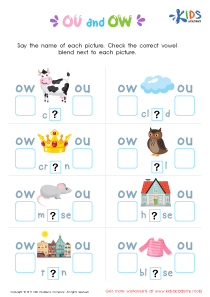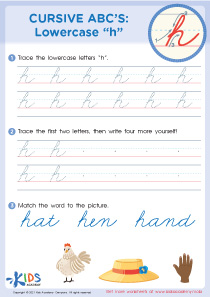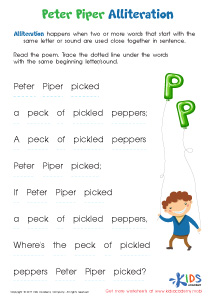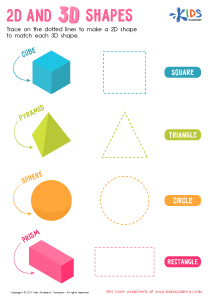Normal Common Vocabulary Quizzes for Ages 3-5
2 results
2 filtered results
Clear all filters2 filtered results
-
From - To
Introducing our Normal Common Vocabulary Interactive Assessment Quizzes, specially designed for children aged 3-5! Engage your little ones with fun and interactive quizzes that not only test their understanding of everyday vocabulary but also provide immediate feedback to reinforce learning. Our quizzes are crafted to captivate young minds, encouraging them to explore and comprehend normal common vocabulary through playful and educational activities. Whether at home or in the classroom, our assessment quizzes are the perfect tool to support the vocabulary development of children in this crucial age range. Dive into learning with our quizzes and watch your child's language skills flourish!
In the modern educational landscape, the importance of building a robust vocabulary from an early age cannot be overstated. For children aged 3-5, acquiring a Normal Common Vocabulary is crucial for their linguistic, cognitive, and social development. To facilitate this essential learning process, interactive quizzes tailored to this age group have emerged as an invaluable tool. These Normal interactive quizzes on Common Vocabulary are not just educational resources but engaging platforms that blend learning with fun, helping children in their studies in several profound ways.
Firstly, these quizzes introduce children to the concept of language in a structured yet entertaining manner. At ages 3-5, children are at a critical stage of development where their brains are like sponges, ready to absorb new information. Normal Common Vocabulary quizzes are carefully designed to cater to this age group, ensuring that the words and phrases presented are suitable for their comprehension levels. This targeted approach helps in gradually expanding their vocabulary, laying a strong foundation for their future language skills.
Secondly, interactive quizzes make learning dynamic. Unlike traditional rote learning methods, quizzes offer an interactive experience that can hold a child's attention longer. By incorporating elements of play and competition, such as rewards for correct answers or animated characters cheering them on, children are more inclined to engage with the material. This engagement is critical in reinforcing the learning, making it more likely that the children will remember the words and their meanings.
Moreover, these quizzes are designed with the understanding that every child learns at their own pace. They offer a personalized learning experience that can be adjusted according to the child's progress. For instance, if a child masters the Normal Common Vocabulary for Ages 3-5 quickly, the quizzes can present more challenging words to keep the learning process stimulating. Conversely, if a child struggles with certain words, the quizzes can offer additional practice on those specific terms, ensuring no child is left behind.
Another significant advantage of these interactive quizzes is their accessibility. In today's digital age, parents and educators can easily integrate these quizzes into the child's daily routine, whether at home or in the classroom. This ease of access ensures that learning can continue outside formal teaching hours, providing children with more opportunities to practice and enhance their vocabulary.
Furthermore, these quizzes also play a crucial role in developing a child's confidence. As children successfully answer questions and progress through the levels, their sense of achievement grows. This boost in confidence can have a ripple effect, encouraging them to explore new words and engage more actively in conversations, further enriching their language skills.
In conclusion, Normal interactive quizzes on Common Vocabulary for Ages 3-5 are more than just educational tools; they are catalysts for language development in young children. By making learning engaging, personalized, accessible, and confidence-boosting, these quizzes help children build a strong vocabulary foundation. This foundation not only aids in their immediate studies but also sets them up for success in their future academic and social endeavors.











